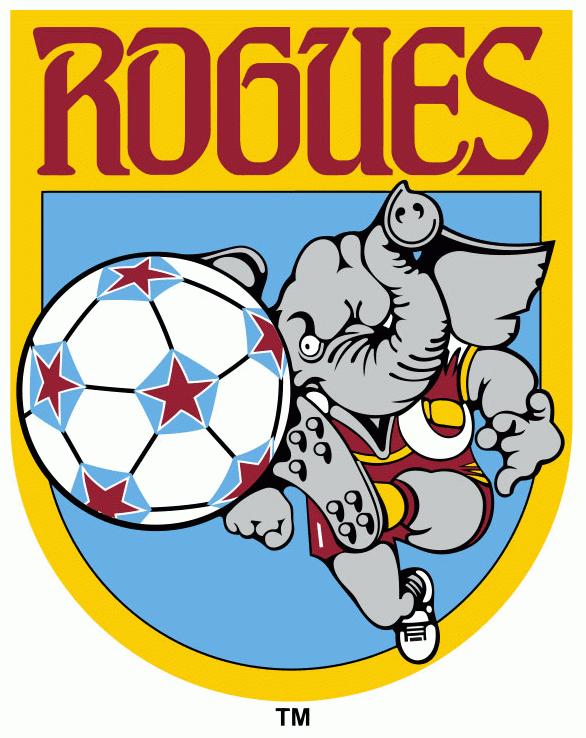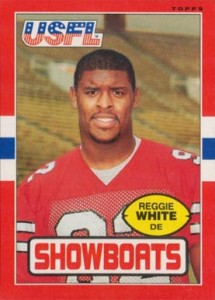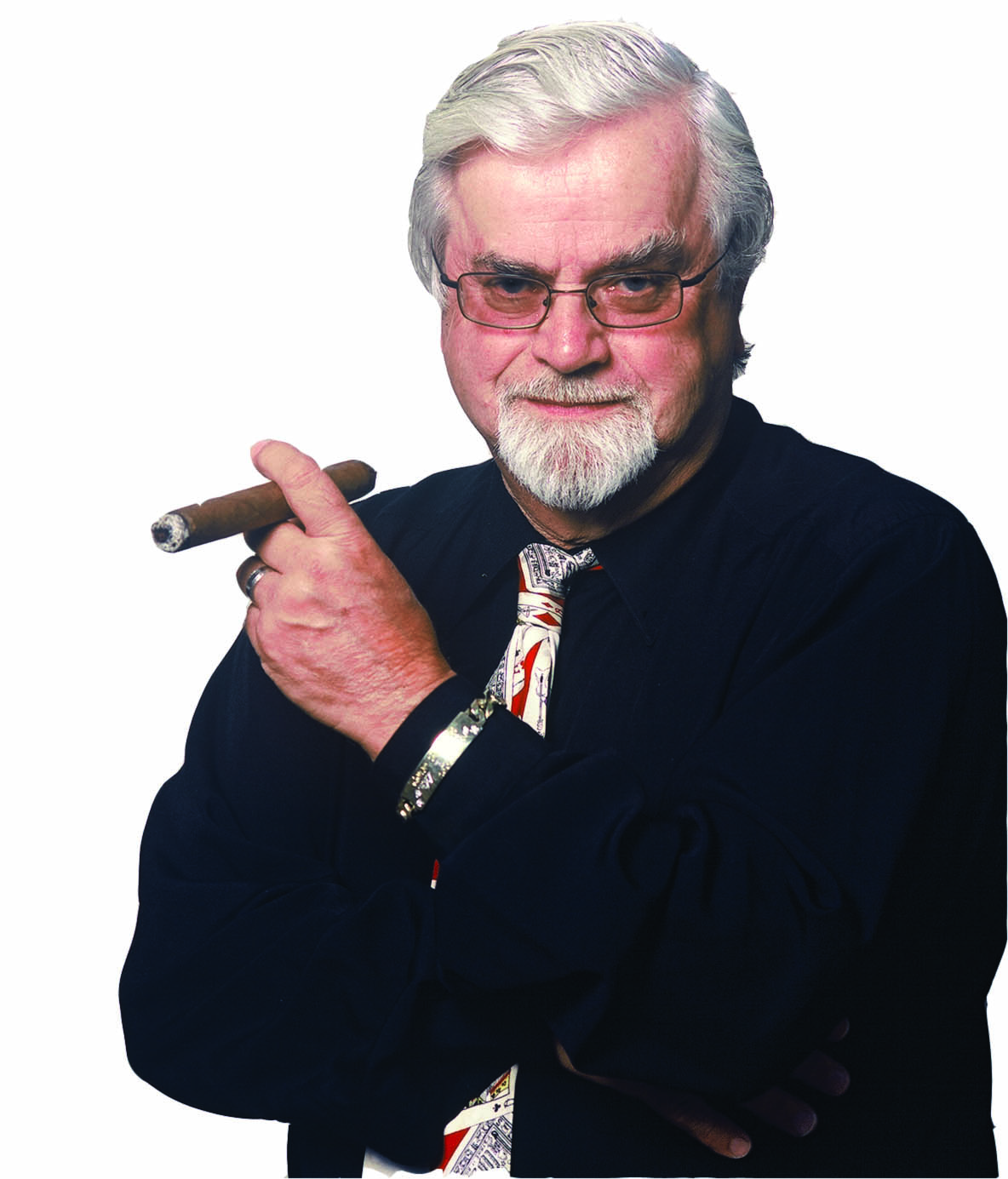“They called me ‘The Undertaker’,” Rudi Schiffer, 75, told me by way of introduction. “Because I buried so many teams. When I walked in the door, people said ‘Uh-oh…we‘re done‘”.
Every once in a while we get an interview subject here in the Fun While It Lasted archives who has little need for questions. I imagine this is what it was like for rock writers to interview David Lee Roth back in the day. Just let the tape roll. Such was the case with long-time Southern sports promoter Rudi Schiffer when I tracked him down in Tennessee last month.
Across Schiffer’s four decade career in pro sports, there were hits and there were misses. Schiffer promoted a string of sold out NFL exhibitions in Memphis, introduced the sport of indoor soccer to sold-out crowds in the Deep South, and promoted one of the most popular franchises of the United States Football League, helping to sell 25,000 season tickets as Vice President of Marketing for the Memphis Showboats in 1985.
Misfires included Schiffer’s efforts to promote a basketball league for short men in Nashville and to prop up a Canadian Football League expansion team…in Shreveport, Louisiana.
Along the way Schiffer encountered assorted crazies – sometimes players, often owners, by his telling – and banked many tall tales (and pointed lessons) about promoting pro sports out on the margins of public awareness.
The following are excerpts from our rambling interview with Rudi. The complete transcript can be found here.
##
FWiL:
Where did you get your start in pro sports?
Schiffer:
A soccer team called the Connecticut Yankees. I had a small PR & marketing firm in Simsbury, Connecticut in the early Seventies. I was looking for clients and saw that a soccer team was coming to play in Hartford. The Yankees were owned by a guy named Bob Kratzer, who owned a machine shop in Bridgeport, Connecticut. He was a tough little German who played soccer and wanted to have his own team.
We played at Dillon Stadium in Hartford. Kratzer recruited all kinds of players that he got out of the local leagues, mostly foreign-born players. We used to have workouts and they would come in and inevitably say: “I play feerst dee-vee-zhion een my country.” We used to laugh – everybody played first division in their country.
Some of the memorable stories for the Yankees… we were in Cleveland and we stayed at the hotel where they had the state convention for “Parents Without Partners”. I don’t know if you know anything about them, but they’re mostly single ladies looking for a husband by any means. We got back to the hotel and the players were filing down the hallway disappearing into doorways left and right. We had a hell of a time getting them out of bed in the morning and getting them on the plane.
You know, like any team of that type, you become chief cook and bottle washer. I took tickets at the gate, got the laundry done, wrote press releases. It was good basic training actually. That led to me joining the Hartford Bicentennials, a rival team that played in the same town.
FWiL:
This was the Bicentennials of the North American Soccer League, the league that had just signed Pele and brought him to the United States, right?
Schiffer:
Yeah. The Bicentennials were owned by Bob Darling, who I knew from Simsbury. Our kids played soccer together. Darling was a nice guy, but kind of naïve. He was very wealthy and he wanted to own a soccer team.
The first year of the Bicentennials was the year Pele signed with the New York Cosmos. We hosted the Cosmos at Dillon Stadium in Hartford which was just a rundown place. I mean, I’d go in the locker room and all we had for lockers was a peg on the wall. Pele was in there with his clothes on the peg and must have been wondering “What the hell is this all about?” That was the first big crowd we had.
Darling picked that Bicentennials name in 1975 because 1976 was going to be the American bicentennial, right? I said: “What about after 1976? What are we gonna be then? The 19-seventy-seven-tennials?”
It was a terrible name. Not much meaning to it and too long to fit in headlines. So we became known as the “Bi’s” in the papers, which I didn’t care for because it sounded like the team was bi-sexual. But you know, having been around professional sports all these years and around so many different teams with terrible names, by the second year it just becomes accepted. It just falls into the common usage and people forget what a terrible name you have.
FWiL:
So what was the next stop for you?
Schiffer:
I abandoned my PR business in Connecticut. I wound up in Memphis where there was a NASL expansion club going in, the Memphis Rogues. I flew down to Tennessee around New Year’s 1978 and met the guy who was running it – Bill Marcum. Marcum was from Tampa, where he helped get the NFL to expand there in 1976. He convinced a guy named Harry Mangurian, who was a horse breeder and owned the Buffalo Braves of the NBA, that he should buy the soccer team in Memphis.
Marcum hired me on New Year’s Eve for the Rogues marketing and PR job, but he was drunk. When I called him a couple days later to get my airplane ticket, he’d forgotten who I was. Which gives you a hint of what was to come.
I finally got down to Memphis and I didn’t have any money. I think Marcum paid me about $15,000 a year. I didn’t have any money to live or get a car, so I stayed with Marcum and I’d ride to work with him every day. He was so absent minded that we’d run out of gas all the time because he’d never look at the odometer. I’d be sitting around the apartment and the lights would go out because he forgot to pay the bill. I had nothing to do except he had these huge boxes in his closet – he had every Playboy that was ever printed, which he carried around with him. Which made for good reading. Sitting there in the dark reading Playboys.
The Rogues were out of control. In Memphis I was constantly getting calls from the police to come down and get the boys out of jail. We had a theme song called “The Rambling Rogues of Memphis“. The theme of the song was Off the field and on the field, we’re the Rambling Rogues. The English players in particular were just wild.
I was a young guy then. Well, I wasn’t that young. We had parties all the time. I got close to the players, which was a mistake, but I didn’t give a damn. We were in last place, we had no money, the lowest budget in the league. Harry Mangurian was tight as a drum. Our total budget for 18 guys was $365,000.
The biggest moment in Memphis Rogues history – and one of the best in soccer history, really – was when the Cosmos came to town with that All-World Cup team of theirs…Beckenbauer, Chinaglia, Carlos Alberto. They came down here just expecting to beat the hell out of us. It was the Rogues first season and we were something like 1-10 at the time. What the Cosmos didn’t realize was that the Liberty Bowl pitch was only 56 yards wide. It wasn’t the 70 yards that they were used to. We packed it up in the back and just played defense and frustrated ‘em. They were getting angry. We had an English player named Phil Holder who was about 5’ 6”. Carlos Alberto was so frustrated he came up kicked Phil right in the groin and got thrown out. Late in the game, we had a young kid from Chelsea named David Stride. Speedy kid with a great left foot. The key of the game was Stridey took off down the left wing, took it deep in the corner, and crossed it into the middle. At the top of the box was Tony Field who had played for the Cosmos the year before. They didn’t want him any more and we got him in a trade. He put a one-timer right in the back of the net and we beat the Cosmos 1-0. It was shocking.

FWiL:
What was it like working for Harry Mangurian?
Schiffer:
Well, Harry really never did want to own a soccer team. Bill Marcum talked him into it. Harry had a lot of money. Harry owned the Buffalo Braves and later the Boston Celtics and he had like 30,000 buildings in Florida, three or four jets. He was tight with a buck. He probably fired me fifteen times, accused me of stealing from him and so on. He called me once and said “Rudi, how many glasses of beer do you get out of a barrel at the stadium?”. I said “It must be sixty, Harry.” He told me, “Well, you’re only getting fifty eight. Are you stealing from me?” Then he sent me a special pump he found that would pump out the last couple glasses at the bottom of a keg.
But when the season was over and Mangurian was done, I got a call from his right hand man. He says “Rudi, why don’t you come down to Florida? Harry wants to play golf with you.” So they fly me down to his place in Boca Raton. He had this beautiful, immaculate white house on the beach. We’re playing golf, coming up on the 17th fairway. Harry turns to me and says “Rudi, how’d you like to go back up to Boston with the Celtics.” I says “What?!” He knew I grew up in Boston and was a Celtics fan.
He says “Yeah, that son of a bitch Red Auerbach is stealing from me.” Everybody was stealing from Harry! He was paranoid.
I said “Harry, I can’t go to Boston.” I mean, Red Auerbach was the living legend. He was surrounded by a coterie of four or five guys known as the Irish mafia guys. I said “I can’t go to Boston and watch Auerbach! Are you kidding me? They’re going to know what I’m up to. They’re going to hand me a pencil and tell me to sit in the corner and shut up. Either that, or they’re going to walk me down to the Mystic River with a pair of cement shoes on!”
FWiL:
Of all of these speculative start-up teams and leagues that you promoted, what do you consider to be the best promotion job you ever did?
Schiffer:
There were a couple. One was the indoor soccer team for the Memphis Rogues. We brought indoor soccer to Memphis when the sport was just starting in this country <in the winter of 1979>. We played at the Mid-South Coliseum. We played indoor soccer there when no one knew anything about it and we sold out every game. We won the Western Division championship and had a heckuva team. We did that with a lot of promotions and it was wild and exciting and everybody loved it. We sold every ticket in the house. But that all faded when the team moved to Canada.
 The other was the Memphis Showboats. Logan Young was a millionaire in Memphis who originally bought the team in 1983. But he fell on tough times and had to sell it and Billy Dunavant bought it from him. Billy was a cotton merchant known around the world. I had moved back to Memphis and was working with an advertising agency that had the Showboats account. Billy Dunavant liked me and the work I was doing for the team. He hired me away from the agency and put me back on my feet. Paid me $50,000 a year, that was good money back in the early 1980’s.
The other was the Memphis Showboats. Logan Young was a millionaire in Memphis who originally bought the team in 1983. But he fell on tough times and had to sell it and Billy Dunavant bought it from him. Billy was a cotton merchant known around the world. I had moved back to Memphis and was working with an advertising agency that had the Showboats account. Billy Dunavant liked me and the work I was doing for the team. He hired me away from the agency and put me back on my feet. Paid me $50,000 a year, that was good money back in the early 1980’s.
We put the team together and got some real good players like Reggie White from the University of Tennessee. When the league went bankrupt a couple years later, 18 of our players went to the NFL. It was a decent team.
The second year in this upstart league, we sold 37,000 tickets a game with 25,000 season tickets. All paid. It was very promising, but the league went down.
After the USFL, I did some work for Fred Smith who owned Federal Express and Pepper Rodgers who had been the Head Coach of the Showboats. Pepper was working with Fred. We staged three NFL exhibition games at the Liberty Bowl in Memphis and we sold all three of them out. We knew the NFL could play in Memphis – it would get the support. But unfortunately the city didn’t want to put the money up to build the stadium and the NFL expanded to Jacksonville instead, which had also had a popular USFL team.
I buried the Connecticut Yankees, buried the Connecticut Bicentennials, the Memphis Rogues and the Calgary Boomers. I buried the Showboats and the Shreveport Pirates of the Canadian Football League and helped bury the Memphis Mad Dogs. There was another basketball team in there somewhere. These teams just weren’t going to make it. To me, it was just another job. Usually they were under-funded and the owners just didn’t want to be in it. There was a bunch.
<The owners’> ego gets them into it through other sources. Like in the case of Bernie Glieberman who owned the Shreveport Pirates in the Canadian Football League, his son Lonie wanted a team. Bill Marcum talked Harry Mangurian into buying the Memphis Rogues. Avron Fogelman’s right hand man Dean Jernigan talked him into buying the Rogues from Mangurian. But they were successful businessmen. Once they got in and saw they weren’t going to make any money, they lost interest. They stuck their toe in the water to see what the temperature was and then they got out of the pool.
Their ego got them into it and the bottom line got them out.
##
Click here to read the full interview with Rudi Schiffer in the Fun While It Lasted archives.


One Response
Excellent stuff, Andy. Thanks.
The Gliebermen were/are fascinating in a Borislow-lite, trainwreck, can’t look away but can’t watch sort of way. Something tells me this isn’t the last we’ll hear of them here at FWIL.